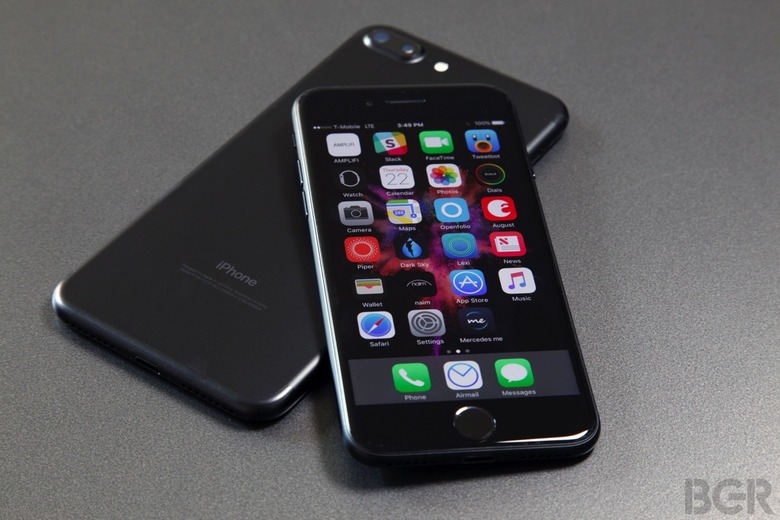Apple Wants To Make It Impossible For Anyone To Snoop On Your iPhone Screen
It's completely your prerogative to sext with a special someone while you're sitting between two strangers on a plane. After all, it's your phone, and you can do whatever you want on it. But that doesn't mean others can't look at that screen, especially considering that iPhones have pretty big displays, and they're only getting bigger. But Apple is working on new technology that will make it nearly impossible for those around you to snoop on what you're doing, whether it's sharing certain pics via texts or working on an important presentation.
First seen by Apple Insider, a new patent application called Displays With Adjustable Angles-of-View explains the technology that would allow the user to customize the viewing angle of a display.
The invention will let you restrict the viewing angle on your iPhone, iPad, or Mac when you want to guard the secrecy of whatever it is that you're doing. You'll then be able to revert back to a wide viewing angle when you want more people to be able to see the action on your iOS or macOS device.
So how does the magic happen? Well, the phone would need an electrically controllable filter that would let the user selectively polarize the screen.
Unfortunately, it seems the screen would require an additional screen layer that would contain this particular filter to work. If that's the case, then Apple would only be able to deploy it in future iPhone, iPad, and Mac models that come with hardware that can support it.
You could try to pull off this privacy trick yourself, using polarizing filters that you'd apply yourself over the display you want to protect. However, that's a one-off solution which would permanently block others from seeing the content on your screen from certain angles. Other side-effects may include a poorer experience for the main user when it comes to colors and brightness.
Apple's invention, meanwhile, would not affect the display's performance and will let the user activate it only when it's needed.
Like with any other Apple invention detailed in patents, this privacy-enhancing screen technology may never be used in future devices. So it's up to you to guard your privacy when you're using the iPhone or Mac in public settings.
